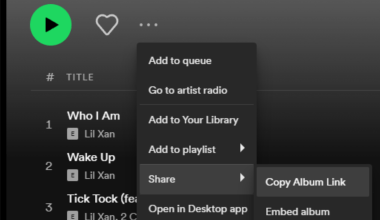If you’re a music enthusiast or someone exploring the music industry, you might have come across the term “masters.” But what does it actually mean? Why is it so important in the music world? Let’s dive into this concept and break it down in the simplest way possible.
Understanding the Term “Masters” in Music
In the music industry, “masters” refers to the original recordings of a song or album. These recordings are considered the final and definitive version of the music, often referred to as the “master copy.” Think of it as the source from which all other versions of the song are made, like streaming files, CDs, or vinyl records. The master recording is like the “parent” of all future copies.
The term “masters” can also signify ownership. When someone says they own their masters, they mean they have the legal rights to their original recordings. This ownership determines who controls how the music is used, distributed, and monetized. For musicians, owning masters often equals more control and financial benefits.
Why Are Masters Important?
Let’s face it, the music industry is complex, and one of the biggest debates revolves around who owns the masters. But why does this matter so much?
- Control Over Music: Owning your masters means you decide where your music appears. Whether it’s in a movie, TV show, or commercial, your permission is required.
- Royalties: When you own your masters, you’re entitled to a significant share of the royalties. Every time someone streams your song or buys your album, you’ll earn a higher percentage.
- Legacy and Influence: Having control over your masters allows you to preserve the integrity of your music for years to come. You get to decide how future generations experience it.
How Do Artists Lose Ownership of Their Masters?
Now that we’ve established the importance of owning masters, it’s essential to understand how artists lose ownership in the first place. Often, this happens when artists sign contracts with record labels. Here’s a simplified version of how it works:
- Signing with a Label: When artists sign with a record label, they often give up ownership of their masters in exchange for funding, promotion, and distribution.
- Advance Payments: Labels provide upfront money (advances) to artists to cover production costs. In return, the label retains the masters.
- Recoupment: Before artists can earn royalties, the label recoups its investment. This can take years, during which the label continues to control the masters.
Famous Artists and the Battle for Masters
Many well-known artists have spoken publicly about the importance of owning their masters. One of the most notable examples is Taylor Swift. She has been vocal about her struggles to reclaim her masters after they were sold without her consent. Other legends like Prince and The Beatles also faced battles over their original recordings. These stories highlight just how significant this issue is for artists.
How Can Artists Retain Ownership of Their Masters?
Here’s some good news: it’s not all doom and gloom. Many modern artists are taking steps to retain ownership of their masters. Here’s how they do it:
- Independent Releases: Artists who release music independently can keep full control of their masters. Platforms like Bandcamp and DistroKid make this easier than ever.
- Negotiating Contracts: Some artists negotiate contracts that allow them to retain ownership of their masters while still benefiting from a label’s resources.
- Re-Recording Music: Artists like Taylor Swift have re-recorded their songs to create new masters they can own.
The Role of Technology in Master Ownership
Technology has revolutionized the way music is created, distributed, and consumed. It has also impacted the concept of masters:
- Digital Distribution: Services like Spotify and Apple Music allow artists to release music without needing a label. This often means they retain their masters.
- Blockchain and NFTs: Some artists are using blockchain technology to secure ownership of their masters and sell them as NFTs (non-fungible tokens).
- Crowdfunding: Platforms like Kickstarter enable artists to fund their projects independently, reducing the need to sign contracts that relinquish their masters.
Why Every Artist Should Understand Masters
Owning your masters isn’t just about money; it’s about artistic freedom. When you control your masters, you’re in charge of your career’s trajectory. Here’s why every artist should pay attention:
- Empowerment: Knowledge is power. Understanding masters gives artists leverage in negotiations.
- Sustainability: Owning your masters creates a steady stream of income, even decades after your music’s release.
- Legacy: Your music is your legacy. Owning your masters ensures you decide its future.
Final Thoughts
So, what does masters mean in music? It’s more than just a technical term. It’s about ownership, control, and the ability to shape your musical legacy. For aspiring and established artists alike, understanding masters can make a world of difference. Whether you’re just starting out or already on your journey, always strive to educate yourself and make informed decisions. After all, your music is your masterpiece—you deserve to own it.
For further reading, explore these related articles:
For additional resources on music marketing and distribution, visit DMT Records Private Limited.






